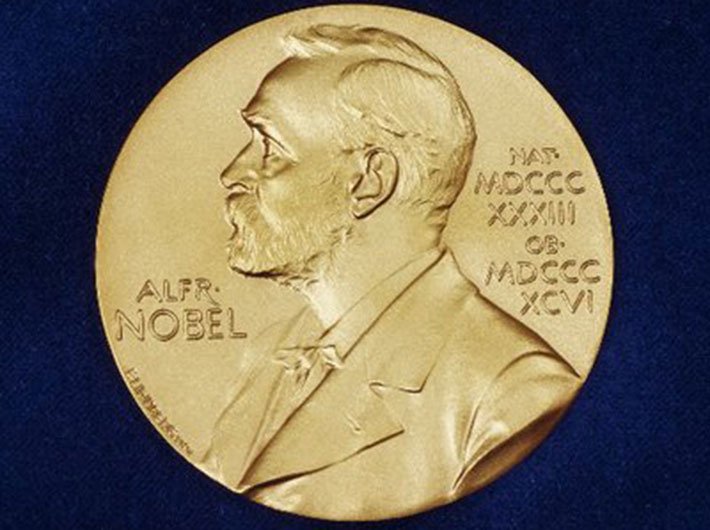LIGO-India proposal is for the construction and operation of an Advanced LIGO Detector in India
There is an India connect to the nobel prize for physics, with the discovery paper having contribution from 39 Indian authors/scientists from nine institutions.
The 2017 Nobel Prize for Physics has been conferred upon Rainer Weiss, Barry C Barish & Kip S Thorne under the LIGO Project for their discovery of gravitational waves, 100 years after Einstein's general relativity predicted it. The Nobel Prize for Physics 2017 celebrates the direct detection of gravitational waves arriving from the merger of two large Black holes in a distant galaxy a billion of light years away.
The discovery paper has 39 Indian authors/scientists from nine institutions - CMI Chennai, ICTS-TIFR Bengaluru, IISER-Kolkata, IISER-Trivandrum, IIT Gandhinagar, IPR Gandhinagar, IUCAA Pune, RRCAT Indore and TIFR Mumbai primarily funded through individual/ institutional grants by Department of Atomic Energy, Department of Science & Technology and Ministry of Human Resource Development AE, DST and MHRD, who are co-authors of this discovery paper.
Late Professor CV Vishveshvara of RRI, Bengaluru (DST AI) and Professor SV Dhurandhar of IUCAA, Pune and some other Indian scientists made seminal contributions to this field which led to the principles behind the LIGO Detector, a press communiqué said.
The group led by Bala Iyer (currently at ICTS-TIFR) at the Raman Research Institute in collaboration with scientists in France had pioneered the mathematical calculations used to model gravitational wave signals from orbiting black holes and neutron stars. Theoretical work that combined black holes and gravitational waves was published by C. V. Vishveshwara in 1970. These contributions are prominently cited in the discovery paper.
An opportunity for India taking leadership in this field has opened up with the LIGO-India mega-science project that was granted ‘in principle’ approval by the Union Cabinet on February 17, 2016. LIGO-India brings forth a real possibility of Indian scientists and technologists stepping forward, with strong international cooperation.
The global science community is unanimous that the future of gravitational wave astronomy and astrophysics, beyond the first discovery, lies with the planned global array of GW detectors, including the LIGO-India observatory. Inclusion of LIGO-India greatly improves the angular resolution in the location of the gravitational-wave source by the LIGO global network. For the discovery event observed by the two advanced LIGO detectors in the US, with a hypothetical LIGO-India in operation, there would have been 100 times improvement in the angular resolution.
The LIGO-India proposal is for the construction and operation of an Advanced LIGO Detector in India in collaboration with the LIGO Laboratories, USA. The objective is to set up the Indian node of the three node global Advanced LIGO detector network by 2024 and operate it for 10 years. The task for LIGO-India includes the challenge of constructing the very large vacuum infrastructure that would hold a space of volume 10 million litres that can accommodate the entire 4 km scale laser interferometer in ultra high vacuum environment at nano-torrs. Indian team is also responsible for installation and commissioning the complex instrument and attaining the ultimate design sensitivity.
The LIGO-India project is being jointly executed by lead institutions: the Inter-University Centre for Astronomy and Astrophysics (IUCAA), Pune of the University Grants commission, and DAE organisations, Institute for Plasma Research (IPR), Gandhinagar, the Raja Ramanna Centre for Advanced Technology (RRCAT), Indore and the Directorate of Construction & Estate Management (DCSEM) of DAE.
LIGO-India is being jointly funded by the Department of Atomic Energy (DAE) and the Department of Science and Technology (DST). A LIGO-India Apex committee, together with the LIGO-India Project Management Board (LI-PMB) and LIGO-India Scientific Management Board (LI-SMB), were constituted in August 2016 to oversee the project execution, and there has been rapid pace of progress since then. LIGO-India is on track for commencing operations by 2024.
